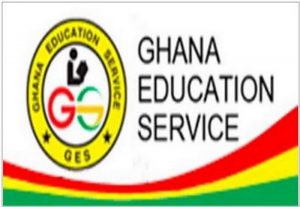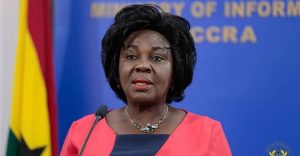The Vision for Alternative Development (VALD)/Tax Advocacy Network for Health Promotion has held a national stakeholder meeting on tobacco taxation to help reduce tobacco consumption in Ghana.
The non-governmental organization is undertaking a tobacco taxation project in the country under the auspices of the Tax Justice Network Africa (TJNA), with support from Bill and Melinda Gates Foundation (BMGF).
Mr Labram M. Musah, the Project Coordinator and Director of Programmes of VALD in a presentation said in 2017 the BMGF provided support to TJNA to fund Tobacco Tax Advocacy in Africa Project, which started with five implementing organizations in four countries.
The countries are The Democratic Republic of Congo (2 organizations), Nigeria, Zambia and Kenya while Ghana joined in the phase ‘2’ in 2021.
Mr Musah said the project was aimed at ensuring that policymakers and advocates had a shared understanding of the potential role that tobacco taxes can play in reducing tobacco use, improving health outcomes, and mobilizing domestic resources within the broader lens of tax justice.
Mr Kwaku Agyeman-Manu, the Minister of Health in a statement read on his behalf said while a combination of measures, such as those outlined in the WHO Framework Convention on Tobacco Control (WHO-FCTC) were needed, to effectively fight tobacco epidemic, increases in tobacco taxes were known to reduce tobacco consumption faster than any other single measure.
“Consequently, pursuing tobacco taxation as a measure for improving health and well-being and resource mobilization for health development is thus the way to go,” he said and that tobacco remained a major global challenge on public health and national economies.
Mr Agyeman-Manu said according to the WHO estimates, tobacco killed up to half of its users and that more than eight million people died each year, of which more than seven million of those deaths were as a result of direct tobacco use, while around 1.2 million were non-smokers being exposed to second-Hand smoke.
“As a ministry, we have tasked ourselves to strengthen health policies especially those relating to tobacco control and we would ensure that they are included among the key policies on our agenda,” he said.
Mr Agyeman-Manu expressed happiness that the project’s aims and objectives were in line with the Ministry’s revised National Health Policy (2020) which was launched last year, saying; “This revised National Health Policy (2020) called for a ‘whole-of-government’ and ‘whole-of-society’ approach in addressing all the social determinants of health for better health outcomes.”
“This therefore means that, working together with the Vision for Alternative Development and the Ghana Tax Advocacy Network for Health Promotion and other stakeholders towards this project would not be out of place,” he said.
In a presentation, the Ghana Revenue Authority said alcohol and tobacco which were traditional products subject to tax, have previously been referred to as ‘Sin Taxes’ because of the devastation they had done and continue to do to human body and society at large.
“Sin taxes have become what is generally referred to as Excise tax or duty and tobacco remains on the list till date,” he said, adding that Excise duty (tax) is defined as a tax imposed on the manufacture, sale or use of some selected products such as alcoholic drinks, tobacco products and petroleum products.”
Present at the meeting were; Dr Baffuor Awuah, the Special Advisor to the Minister of health, Dr Alex Kombat, Assistant Commissioner, Support Service Divison, Ghana Revenue Authority, Dr Akoto Appau, the Head of Excise, Custom Division of the Ghana Revenue Authority, Dr Michael Boakye, a consultant, Hendrich Dwomor of the Tax Policy Unit of the Ministry of Finance, and Mavis Danso, a Senior Regulatory Officer in-charge of Tobacco and Substance Abuse at the Food and Drugs Authority.







